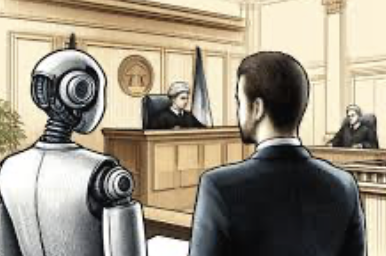ChatGPT and similar AI technologies are not likely to make lawyers obsolete. While these AI tools form the potential of enhancing certain aspects of legal work and streamlining processes, they lack the depth of expertise, critical thinking, human judgment and empathy that are essential in the legal profession.
Here are some reasons why ChatGPT will not make lawyers obsolete.
#1: Complex legal analysis: Legal cases often involve intricate interpretations of laws, regulations and precedents. Lawyers bring in-depth understanding and contextual knowledge that AI cannot replicate.
#2: Critical thinking and creativity: Lawyers engage in strategic thinking, creative problem-solving and crafting persuasive arguments – skills that require human intuition and expertise.
#3: Emotional and ethical considerations: Many legal matters involve human emotion, professional ethics and moral judgment. Lawyers provide guidance in human and emotional matters that AI cannot comprehend.
#4: Client relationships: Building trust and understanding with a client is a fundamental aspect of the practice of law. Lawyers establish rapport, offer personalized advice and address individual concerns.
#5: Courtroom advocacy: Representing clients in court involve dynamic interactions, responding to opposing counsel in real time and adapting to the judge’s reaction – a skill set unique to lawyers.
#6: AI limitations: AI systems like ChatGPT have limitations such as producing inaccurate information because of ambiguous inputs. AI is incapable of fully understanding complex context, and so produces errors that could have serious legal consequences.
#7: Legal ethics and accountability: Lawyers are held accountable for their advice and actions. AI lacks the moral responsibility and ethical awareness that lawyers possess.
#8 Changing role of lawyers: AI is more likely to transform the legal profession by automating routine tasks, facilitating research and providing data-driven insights. This allows lawyers to focus on higher level tasks that require human judgment.
#9 Regulatory and ethical challenges: The legal field is involved in regulating AI technologies and addressing the legal implications of AI. Lawyers play a crucial role in shaping these regulations and policies.
In summary, while ChatGPT and AI technologies can be valuable tools for lawyers, they cannot fully replace the expertise, critical thinking, emotional intelligence and ethical responsibilities that human lawyers bring to the table. The future of law will likely involve a symbiotic relationship between AI and lawyers, where AI augments legal work, while lawyers retain their indispensable role in providing legal advice, advocacy and ethical guidance.
Source: “Using ChatGPT and Other Generative AI Programs”, Greensfelder, Hemker & Gale, P.C. (August 24, 2023).
Editorial Note: Originally written in 2023, this article breaks down why AI tools like ChatGPT won’t replace lawyers—but will reshape how we practice. Helpful perspective for professionals curious or concerned about what’s next.
Steve Benmor, B.Sc., LL.B., LL.M. (Family Law), C.S., Cert.F.Med., C.Arb., FDRP PC, is the founder and principal lawyer of Benmor Family Law Group, a boutique matrimonial law firm in downtown Toronto. He is a Certified Specialist in Family Law, a Certified Specialist in Parenting Coordination and was admitted as a Fellow to the prestigious International Academy of Family Lawyers. Steve is regularly retained as a Divorce Mediator/Arbitrator and Parenting Coordinator. Steve uses his 30 years of in-depth knowledge of family law, court-room experience and expert problem-solving skills in Divorce Mediation/Arbitration to help spouses reach fair, fast and cooperative divorce settlements without the financial losses, emotional costs and lengthy delays from divorce court.
Share this article on:
